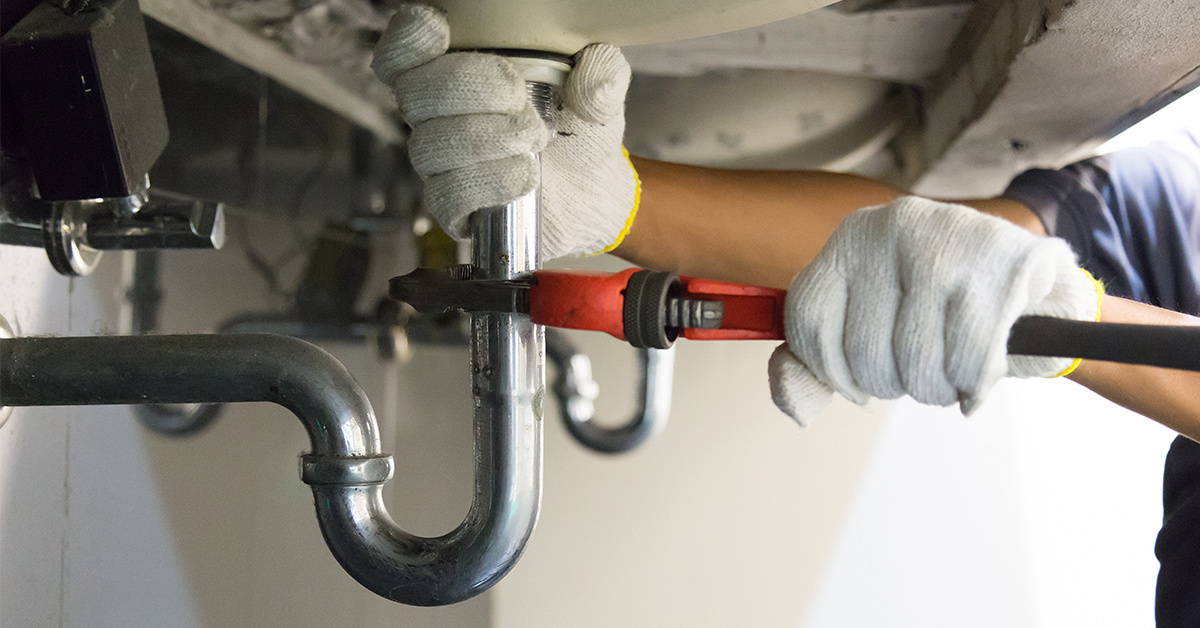Everything You Need to Know About Becoming a Plumber
So, you’re thinking about taking the plunge - literally - and becoming a plumber. Good for you!
Becoming a journeyman or master plumber takes dedication, hard work, and determination. But if you're interested in learning the trade and beginning your career in plumbing, this blog post is here to help you easily understand and navigate the path ahead of you.
We'll look at questions to ask along the way, qualifications and experience needed, how long it takes to earn your license, and more. Let’s get started!
1. Research the Job
The first step is to really understand what plumbers do. Is this a career you would, you know, actually like? Plumbers enjoy the satisfaction of working with their hands and using skills to solve plumbing issues for customers, peers, and employers. On any given day as a plumber, you might have to:
- Assemble, install, and repair pipes and fixtures associated with heating, cooling, water distribution, and sanitation systems
- Test plumbing systems for leaks and other problems
- Read blueprints to understand or plan the layout of plumbing works
- Install supports for pipes, equipment, and fixtures before installation
- Cut holes in walls or floors to accommodate pipe assemblies
- Inspect drainage systems to verify compliance with building codes
- Repair or replace broken drains, valves, and fittings
- Operate power tools such as snakes used in cleaning out clogged drains
- Connect water supply lines to sinks or toilets
Accordingly, you must have a wide variety of skills to be successful. Plumbing requires knowledge of both mechanical engineering and construction, as well as problem-solving abilities.
A good plumber also has excellent customer service skills and the ability to work with people from all walks of life. The best plumbers can think critically, troubleshoot problems quickly, and take initiative when faced with challenging situations.
2. Talk to Plumbers
One of the best ways to learn how to become a plumber is by talking to people who have already been there and done that.
Ask your network if they know anyone who would be willing to share their advice or shoot the breeze with the professional who comes over the next time something goes wrong at your place. Here are some questions to consider asking:
- What type of experience and education do I need to become a plumber?
- What kinds of challenges does the job involve?
- Are there any special certifications or licenses required for this profession?
- How is the job market for plumbers in the area?
- How much money can I expect to make as a plumber?
- What kind of career advancement opportunities are available within this field?
- Could you tell me what a typical day on the job looks like for you?
- Do you have any tips on how best to break into this profession?
3. Gain Experience
Most states require that you complete an apprenticeship as part of your journey to working as a licensed plumber.
Apprenticeships allow aspiring plumbers to learn from experienced professionals and hone their skills in a supervised setting. Apprenticeship programs vary by state but typically involve on-the-job training and classroom instruction.
To find a plumbing apprenticeship, you can start by researching local trade schools or unions that might offer such opportunities. Additionally, many plumbing companies will have information about apprenticeships available online or through local advertisements.
Networking with other plumbers is another excellent way to learn more about available apprenticeships and increase your chances of getting accepted into one.
4. Get Certified
To become a licensed plumber, you must complete various courses and certifications to demonstrate the necessary skills and knowledge for your profession.
Depending on the state you live in, these requirements may vary. Generally, as part of your apprenticeship or vocational training from a reputable plumbing school or organization, you’ll need to pass a series of examinations that cover topics such as safety practices, plumbing codes, and installation techniques.
Once you’ve completed these educational requirements, the next step is to obtain a journeyman or master plumber’s license. This requires passing both written and practical tests administered by the local government authority. After passing the tests and getting your license, you’ll be ready to work as a plumber.
How Long Does It Take to Become a Plumber?
The length of time needed to become a fully licensed plumber varies by state. Alabama, for instance, requires two years of apprenticeship, followed by one year of experience as a journeyman, before you can take the master plumber’s license test.
By contrast, Colorado requires five years of total experience working under a licensed plumber and then as a journeyman before you can apply to be a master plumber in the state. Be sure to check the regulations in your state.
There are also different types of licenses issued, and the one you choose may impact your job prospects, salary, and the type of work you do.
About Southern Home Services
Southern Home Services operates plumbing, HVAC, and electrical home services companies nationwide. We’re always happy to offer some friendly advice to those looking for a career in plumbing or a related field, and we’re always hiring qualified individuals. View our open positions and learn more about a career with Southern Home Services today!


